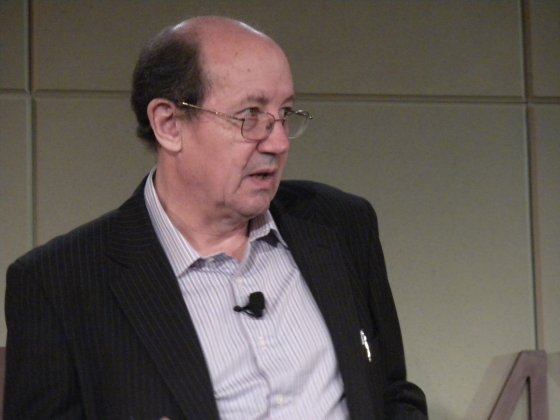(I’m reporting all this week at the Techonomy conference in Lake Tahoe, California. For more coverage, check out the Techonomy blog.)
At the Techonomy conference, David Christian of Macquarie University gave a presentation entitled, “Reinventing Intelligence: Why collective learning makes humans so different.”Christian began his talk by explaining that there’s a very long history of scientists trying to answer the question, “What makes humans different?” The answers have resulted in a series of failed attempts to define humanity.
For example, it’s been said that humans are different because we:
- Use tools – But we know that monkeys, gorillas, and crows use tools as well.
- Lead an interior emotional life – But we can see love between animals, such as mothers and their children.
- Use language – But Coco the gorilla can speak.
The reason the answer to this question has failed multiple times is because we haven’t been able to see the history of humanity as a whole. To understand humanity you need to understand the entire history of humanity from the creation of the universe to today.
We’re dangerous consumers
Over the history of time, every species has consumed slightly more calories than they need. But humans consume far more than we need. If one species consumes that much energy, then there’s less for others. And thanks to our increased appetite, others species are becoming extinct at a rate of 1000 times what they’ve been before we arrived and started consuming so much. We’re dangerously powerful, said Christian.
Christian continued explaining that what’s unique about humans is that we dominate the biosphere, but we also have a unique desire for innovation.
How old is the gift of ecological creativity?
Christian demonstrated that with each human migration we discover new ways of extracting energy. For example, to migrate to Australia, humans had to cross water. To go to Siberia, they had to learn how to deal with the extreme cold. The paleolithic history is a history of technological innovation.
The source of creativity is linguistic efficiency
While other animals can speak, they haven’t been able to record, collect, and pass down that information. We have crossed a threshold in linguistic efficiency. For example, explained Christian, researchers have seen baboons follow another baboon that’s a good hunter. But once that baboon died, that baboon’s knowledge of hunting died with him. It wasn’t passed down from baboon to baboon.




